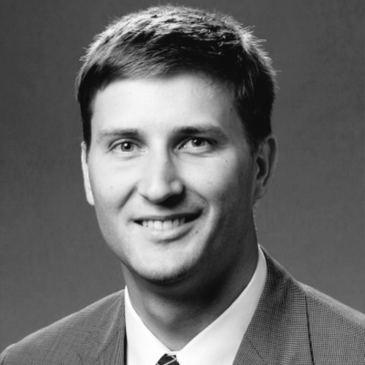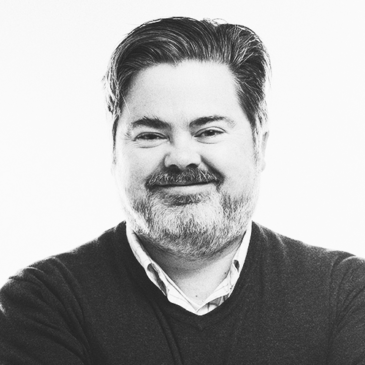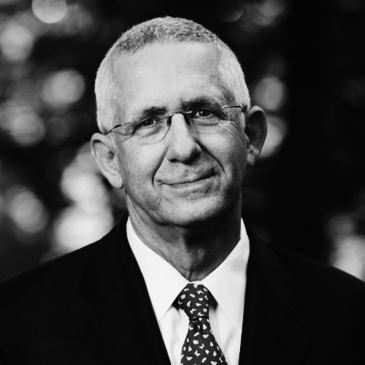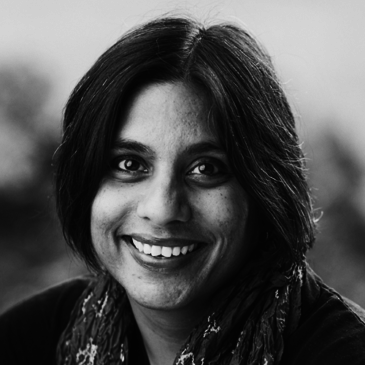Oskar Liivak, Professor of Law, graduated from Rutgers College with highest honors in 1994; received a Ph.D. in physics from Cornell University in 2000, focusing on techniques for determining protein structure; and received a J.D. from Yale Law School in 2005. From 2000 to 2001, Professor Liivak was a postdoctoral scientist working on physical realization of quantum computing in the Quantum Information Group at IBM’s Almaden Research Center in San Jose, California. Prior to law school, he served as a patent agent in the Boston office of Fish & Richardson P.C. Most recently, Professor Liivak served as a law clerk to Judge Sharon Prost on the United States Court of Appeals for the Federal Circuit.
Intellectual Property Law EssentialsCornell Certificate Program
Overview and Courses
Intellectual property is increasingly becoming a central feature of today’s global economy. Business familiarity and comfort with this area of law can lay the foundation for a successful product, company, or career.
In this certificate program from Cornell Law School, you will explore the fundamental features of trademarks, copyrights, trade secrecy, and patents, emphasizing their particular strategic benefits and pitfalls. You will align specific applications of IP law with the goals of your business, organization, or team, and acquire strategies to protect your hard work. Through elective courses, you’ll have opportunities to expand on these teachings in practical, relevant ways, such as anticipating potential issues with trademarks and copyrights or by promoting innovation in your organization. By immersing yourself in the terms and concepts of IP law, you will master best practices for partnering with legal professionals, allowing you to leverage these tools to advance your product, service line, or business. By the end of this certificate program, you’ll have a solid foundation in IP law, making you an even greater asset to your team and organization.
Course list
The global economy runs on innovation, and the key to that innovation is the ability for people to bring their ideas to life. Intellectual property law is crucial to this process, protecting ideas and encouraging innovation.
This course will explore the benefits and risks of both trade secrets and patents. By assessing your business to see how trade secrets and patents affect your team, you will evaluate the qualifications for each type of protection along with ways to ensure you are properly protected. Using your organization as the focus, you will determine best practices as well as the misuses and misappropriation that can affect your work. As you identify ways to keep your patents and trade secrets secure and examine ways they can be compromised, you will gain insights into the legal elements of your organization. By the end of this course, best practices for patent and trade secret security will give you and your organization an advantage in the world of innovation.
Having a distinctive symbol, word, or key phrase, like a trademark, helps consumers identify your product and support your growth. In this course, you will assess what makes strong trademarks and the various ways in which they can be violated. You will also explore copyrights, including how they protect creativity in the economy and how these protections have evolved over time. Putting these tools into action, you will review several court cases and participate in hands-on activities to help you assess how trademarks and copyrights work to protect intellectual property. By the end of this course, you will have gained the knowledge and strategies to support your organization's work by successfully and strategically employing trademarks and copyrights.
You are required to have completed the following course or have equivalent experience before taking this course:
- Trade Secrets and Patents
Symposium sessions feature three days of live, highly interactive virtual Zoom sessions that will explore today’s most pressing topics. The Leadership Symposium offers you a unique opportunity to engage in real-time conversations with peers and experts from the Cornell community and beyond. Using the context of your own experiences, you will take part in reflections and small-group discussions to build on the skills and knowledge you have gained from your courses.
Join us for the next Symposium in which we’ll discuss the ways that leaders across industries have continued engaging their teams over the past two years while pivoting in strategic ways. You will support your coursework by applying your knowledge and experiences to relevant topics for leaders. Throughout this Symposium, you will examine different areas of leadership, including innovation, strategy, and engagement. By participating in relevant and engaging discussions, you will discover a variety of perspectives and build connections with your fellow participants from various industries.
Upcoming Symposium: October 15-17, 2024 from 11am – 1pm ET
All sessions are held on Zoom.
Future dates are subject to change. You may participate in as many sessions as you wish. Attending Symposium sessions is not required to successfully complete any certificate program. Once enrolled in your courses, you will receive information about upcoming events. Accessibility accommodations will be available upon request.
How can you protect your company from having former employees divulge trade secrets or take customer relationships to competing firms? How does the law regard inventions and copyrights; who owns them?
Answers to these questions will vary depending on the status of the employee. There are specific protections for rank-and-file employees, as well as certain expectations of executives when it comes to misappropriation of company assets and non-compete contracts. This course will help you understand the rationale behind these laws and how they play out in real-life situations.
You begin with a focus on the employee's obligations to their employer: When is it acceptable to compete with a former employer, when is it not acceptable, and how can you tell the difference? The course proceeds with an exploration of the variety of contracts that employers can use to protect themselves from employees competing in various ways. You will have a chance to evaluate restrictive covenants and reflect on the question of what constitutes legitimate business interests. You will gain familiarity with aspects of the reasonably tailored tests. The course ends with a look at the legal responsibilities that apply to copyrights and inventions and introduces the role that a well-crafted holdover clause can play in protecting the interests of a business.
You are required to have completed the following course or have equivalent experience before taking this course:
- Employment Law in Practice
One of the challenges organizations face today is how to innovate. Innovation has become the modus operandi of organizational life. Every organization needs to innovate quickly to stay competitive. But what does “innovation” really mean?
In simple terms, innovation is the practical application of creative ideas to drive organizational results; innovation results in something useful that benefits the organization. In this course, Cornell University's Professor Samuel Bacharach, Ph.D., clears away common misconceptions about the mystery surrounding this popular buzzword and identifies how individuals can harness creative energy to drive innovative results. Students will identify strategies for encouraging divergent thinking and examine methods of fostering a culture of innovation.Before closing an investment deal, an entrepreneur needs to protect their interests, and an investor needs to verify the stability of the opportunity. This series of steps is called the due diligence process. In this course, you will create a due diligence project plan for your investment or opportunity that maps out how to get from term sheet to closing. This process includes key milestones, timeframes, a detailed understanding of key players' responsibilities, and consideration for the various types of due diligence. Then, you will compile a list of questions for the due diligence checklist, a key element of the process that outlines the questions that need to be answered and the documentation that is required to close the deal. Lastly, you will identify, review, and analyze the dozens of critical documents being exchanged that are needed to finalize the investment deal and retain for future use, protection, and reference. By completing these steps, you will be ready to determine if you should move forward or hold back on your deal.
You are required to have completed the following courses or have equivalent experience before taking this course:
- Startup Viability and Funding Options
- Pitching Your Business Opportunity
- Protecting Your Interests
- Financial Planning, Valuation, and Dilution
How It Works
- View slide #1
- View slide #2
- View slide #3
- View slide #4
- View slide #5
- View slide #6
- View slide #7
- View slide #8
- View slide #9
Faculty Authors
Tom Schryver is the Executive Director of the Cornell Center for Regional Economic Advancement (CREA) and a Visiting Lecturer at the Johnson Graduate School of Management. CREA’s programs include Rev: Ithaca Startup Works, the Southern Tier Startup Alliance, and support of Cornell’s regional economic advancement efforts. Mr. Schryver leads the Upstate NY I-Corps Node and is the lead instructor for Cornell Engineering’s Commercialization Fellows program. He serves on the teaching team for eLab, Cornell’s student business accelerator, and teaches entrepreneurship and business strategy at Cornell.
Mr. Schryver is an experienced entrepreneur, having served as a startup founder and senior finance executive of high-growth companies. Previously, he was Director of Finance for the Triad Foundation, where his responsibilities included investing the Foundation’s $250m portfolio to top-quartile returns. Mr. Schryver’s board affiliations include the Cornell Agriculture and Food Technology Park and Tompkins County Area Development, and he serves as board vice-chair of the Business Incubator Association of New York State.
Stewart J. Schwab is the Jonathan and Ruby Zhu Professor of Law at Cornell Law School and was its Allan R. Tessler Dean from 2004 to 2014. He has been a member of the Cornell Law School faculty since 1983.
A native of North Carolina, he obtained his J.D. as well as a Ph.D. in economics from the University of Michigan. Before joining the Cornell faculty, Professor Schwab clerked for Judge J. Dickson Phillips, Jr. of the U.S. Court of Appeals for the Fourth Circuit, and then for Justice Sandra Day O’Connor of the United States Supreme Court.
Professor Schwab is a leading scholar in economic analysis of law and in employment law. He was a reporter for the American Law Institute’s Restatement of Employment Law and for the Uniform Law Commission Study Committee on Covenants Not to Compete, and he has been named by Human Resource Executive as one of the 50 most powerful employment attorneys in America. He is an editor of the Journal of Empirical Legal Studies, as well as a member of the Society of Empirical Legal Studies and the American Law and Economics Association.
Professor Schwab has taught widely in the curriculum, including Torts, Contracts, Corporations, Discrimination Law, Employment Law, Labor Law, Law and Economics, and Whistleblower Law.
Samuel Bacharach is the McKelvey-Grant Professor Emeritus and Director of the Smithers Institute at the Cornell ILR School. He received his B.S. in economics from NYU., and his M.S. and Ph.D. from the University of Wisconsin.
Upon joining the Cornell faculty in 1974, Dr. Bacharach spent most of his time working on negotiation and organizational politics, publishing numerous articles and two volumes (“Power and Politics in Organizations” and “Bargaining: Power, Tactics, and Outcome,” both with Edward J. Lawler). In the 1980s he continued working on negotiation but shifted emphasis to the study of complex organizations, with the empirical referent being schools. Besides his academic articles, Dr. Bacharach has published a number of books on school management and leadership, such as “Tangled Hierarchies” (with Joseph Shedd) and “Education Reform: Making Sense of It All.”
Mukti Khaire is Girish and Jaidev Reddy Professor of Practice at Cornell Tech and the Cornell SC Johnson College of Business. Dr. Khaire received a Ph.D. in Management in 2006 from Columbia University’s Graduate School of Business. Before that, she completed a Master’s in Management from Indian Institute of Technology (IIT) – Bombay, and a Master of Science in Environmental Science and a Bachelor of Science in Microbiology from the University of Pune, India. Prior to joining Cornell Tech in 2016, Dr. Khaire was on the faculty of Harvard Business School (Entrepreneurial Management Unit; 2005-2016) and spent a year as Visiting Faculty at Brown University (Sociology; 2015-2016).
Dr. Khaire’s research focuses on entrepreneurship in the creative industries, such as art, advertising, architecture and design, fashion, film, music, publishing, and theater. In particular, she is interested in understanding how entrepreneurs create markets for new categories of cultural goods by constructing their value, while also changing consumers’ beliefs about what attributes of cultural goods are appropriate and valuable. In this vein, Dr. Khaire studied the creation of a market for modern Indian art and the rise and establishment of the high-end fashion industry in India. Her work, which has been published in leading business and management journals, has shed light on the structure and functioning of creative industries as well as the business and societal implications of entrepreneurship in the cultural sector. Dr. Khaire has also authored 35 teaching cases on firms in the creative industries.

Oskar Liivak, Professor of Law, graduated from Rutgers College with highest honors in 1994; received a Ph.D. in physics from Cornell University in 2000, focusing on techniques for determining protein structure; and received a J.D. from Yale Law School in 2005. From 2000 to 2001, Professor Liivak was a postdoctoral scientist working on physical realization of quantum computing in the Quantum Information Group at IBM’s Almaden Research Center in San Jose, California. Prior to law school, he served as a patent agent in the Boston office of Fish & Richardson P.C. Most recently, Professor Liivak served as a law clerk to Judge Sharon Prost on the United States Court of Appeals for the Federal Circuit.

Tom Schryver is the Executive Director of the Cornell Center for Regional Economic Advancement (CREA) and a Visiting Lecturer at the Johnson Graduate School of Management. CREA’s programs include Rev: Ithaca Startup Works, the Southern Tier Startup Alliance, and support of Cornell’s regional economic advancement efforts. Mr. Schryver leads the Upstate NY I-Corps Node and is the lead instructor for Cornell Engineering’s Commercialization Fellows program. He serves on the teaching team for eLab, Cornell’s student business accelerator, and teaches entrepreneurship and business strategy at Cornell.
Mr. Schryver is an experienced entrepreneur, having served as a startup founder and senior finance executive of high-growth companies. Previously, he was Director of Finance for the Triad Foundation, where his responsibilities included investing the Foundation’s $250m portfolio to top-quartile returns. Mr. Schryver’s board affiliations include the Cornell Agriculture and Food Technology Park and Tompkins County Area Development, and he serves as board vice-chair of the Business Incubator Association of New York State.

Stewart J. Schwab is the Jonathan and Ruby Zhu Professor of Law at Cornell Law School and was its Allan R. Tessler Dean from 2004 to 2014. He has been a member of the Cornell Law School faculty since 1983.
A native of North Carolina, he obtained his J.D. as well as a Ph.D. in economics from the University of Michigan. Before joining the Cornell faculty, Professor Schwab clerked for Judge J. Dickson Phillips, Jr. of the U.S. Court of Appeals for the Fourth Circuit, and then for Justice Sandra Day O’Connor of the United States Supreme Court.
Professor Schwab is a leading scholar in economic analysis of law and in employment law. He was a reporter for the American Law Institute’s Restatement of Employment Law and for the Uniform Law Commission Study Committee on Covenants Not to Compete, and he has been named by Human Resource Executive as one of the 50 most powerful employment attorneys in America. He is an editor of the Journal of Empirical Legal Studies, as well as a member of the Society of Empirical Legal Studies and the American Law and Economics Association.
Professor Schwab has taught widely in the curriculum, including Torts, Contracts, Corporations, Discrimination Law, Employment Law, Labor Law, Law and Economics, and Whistleblower Law.

Samuel Bacharach is the McKelvey-Grant Professor Emeritus and Director of the Smithers Institute at the Cornell ILR School. He received his B.S. in economics from NYU., and his M.S. and Ph.D. from the University of Wisconsin.
Upon joining the Cornell faculty in 1974, Dr. Bacharach spent most of his time working on negotiation and organizational politics, publishing numerous articles and two volumes (“Power and Politics in Organizations” and “Bargaining: Power, Tactics, and Outcome,” both with Edward J. Lawler). In the 1980s he continued working on negotiation but shifted emphasis to the study of complex organizations, with the empirical referent being schools. Besides his academic articles, Dr. Bacharach has published a number of books on school management and leadership, such as “Tangled Hierarchies” (with Joseph Shedd) and “Education Reform: Making Sense of It All.”

Mukti Khaire is Girish and Jaidev Reddy Professor of Practice at Cornell Tech and the Cornell SC Johnson College of Business. Dr. Khaire received a Ph.D. in Management in 2006 from Columbia University’s Graduate School of Business. Before that, she completed a Master’s in Management from Indian Institute of Technology (IIT) – Bombay, and a Master of Science in Environmental Science and a Bachelor of Science in Microbiology from the University of Pune, India. Prior to joining Cornell Tech in 2016, Dr. Khaire was on the faculty of Harvard Business School (Entrepreneurial Management Unit; 2005-2016) and spent a year as Visiting Faculty at Brown University (Sociology; 2015-2016).
Dr. Khaire’s research focuses on entrepreneurship in the creative industries, such as art, advertising, architecture and design, fashion, film, music, publishing, and theater. In particular, she is interested in understanding how entrepreneurs create markets for new categories of cultural goods by constructing their value, while also changing consumers’ beliefs about what attributes of cultural goods are appropriate and valuable. In this vein, Dr. Khaire studied the creation of a market for modern Indian art and the rise and establishment of the high-end fashion industry in India. Her work, which has been published in leading business and management journals, has shed light on the structure and functioning of creative industries as well as the business and societal implications of entrepreneurship in the cultural sector. Dr. Khaire has also authored 35 teaching cases on firms in the creative industries.
- View slide #1
- View slide #2
- View slide #3
- View slide #4
- View slide #5
Key Course Takeaways
- Assess what parts of your business might be covered by patents, trade secrets, trademarks, or copyrights
- Examine strategies for securing your intellectual property rights and for avoiding infringing on those of others
- Consider which protections might be best for your organization’s needs
- Evaluate the efforts needed to establish IP protections
- Explore how intellectual property rights can be misused
- Protect your organization from having former employees divulge trade secrets
- Consider how the organizational structure in place fosters or inhibits innovation
- Establish organizational processes and systems that balance the risks and rewards of new ideas
- Create a due diligence project plan for an investment or opportunity

Download a Brochure
Not ready to enroll but want to learn more? Download the certificate brochure to review program details.
What You'll Earn
- Intellectual Property Law Essentials Certificate from Cornell Law School
- 56 Professional Development Hours (5.6 CEUs)
- 0-7 Professional Development Units (PDUs) toward PMI recertification
- 0-10 Professional Development Credits (PDCs) toward SHRM-CP and SHRM-SCP recertification
- 0-10 Credit hours towards HRCI recertification
Watch the Video
Who Should Enroll
- Entrepreneurs
- People whose roles involve new product or service development
- Business development and marketing professionals
- R&D, engineering, and technology managers
“Cornell Law’s certificate programs are worth it! I learned a lot in a very short amount of time. The structure gave me a great amount of flexibility to do the work, and it was easy to fit into my super busy schedule. Great experience!”
Request Information Now by completing the form below.

Intellectual Property Law Essentials
| Select Payment Method | Cost |
|---|---|
| $2,999 | |
